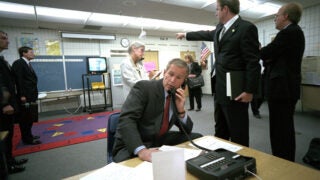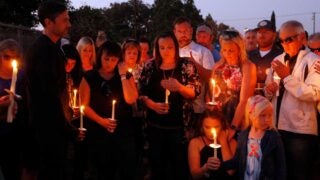Terrorism
News Listing
USC experts reflect on the reverberations of 9/11 and the end of the war in Afghanistan, including the impact on veterans and their mental health care.
The terrorist attacks on 9/11 could have divided the nation, but USC Dornsife’s Susan Kamei says lessons from World War II helped the government avoid repeating past mistakes.
The center began in 2004 as the Department of Homeland Security’s first university-based Center of Excellence; it remains headquartered at the USC Price School of Public Policy and the USC Viterbi School of Engineering.
The grant of nearly $1 million to USC’s Center for Risk and Economic Analysis of Terrorism Events (CREATE) comes from the Department of Defense’s Minerva Program.
Erroll Southers literally wrote the book on homegrown violent extremism. Now, he’s sharing his research with the world to help prevent another major riot on American soil.
A USC study shows that Americans are more inclined to attend events at arenas and convention centers with counterterrorism or anti-crime security measures despite convenience and privacy sacrifices.
Mental health and wellness expert at USC reflects on what can be done to counteract extremism on the ground.
Safe Communities Institute Director Erroll Southers sets out to integrate lessons from France into U.S. solutions.
David Schonfeld and Marleen Wong offer school officials training and guidance as they begin to develop counseling and support programs for children and community members.






